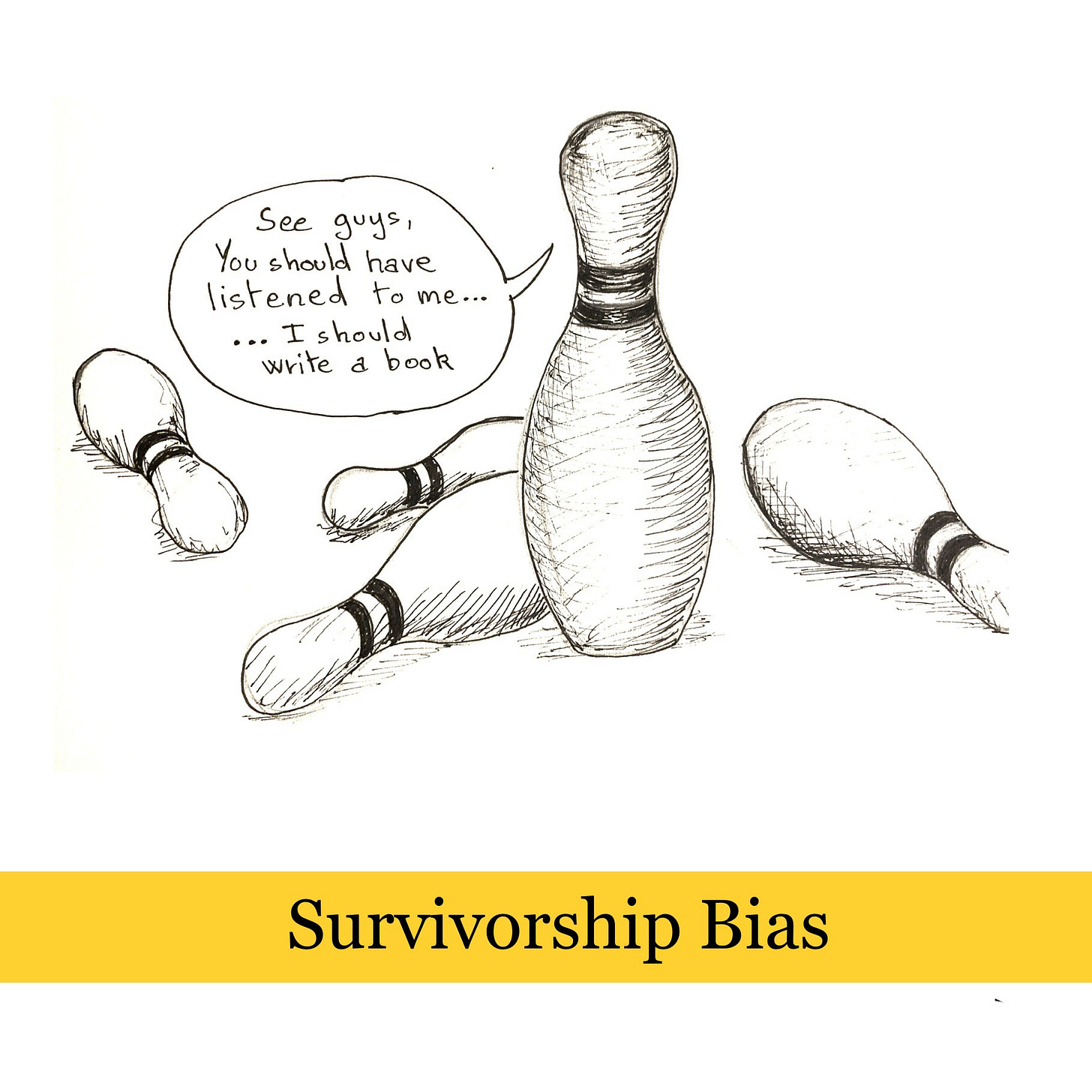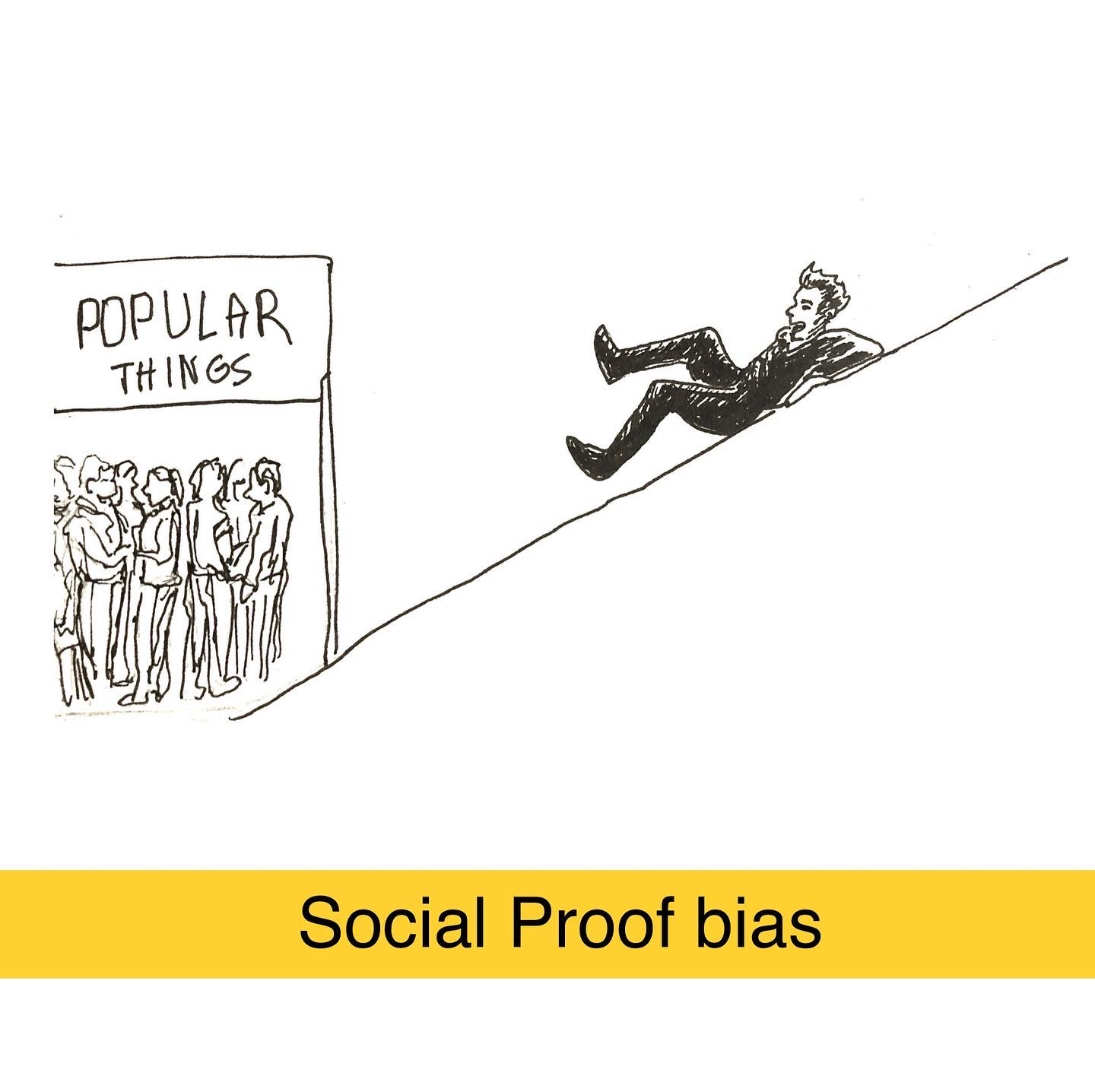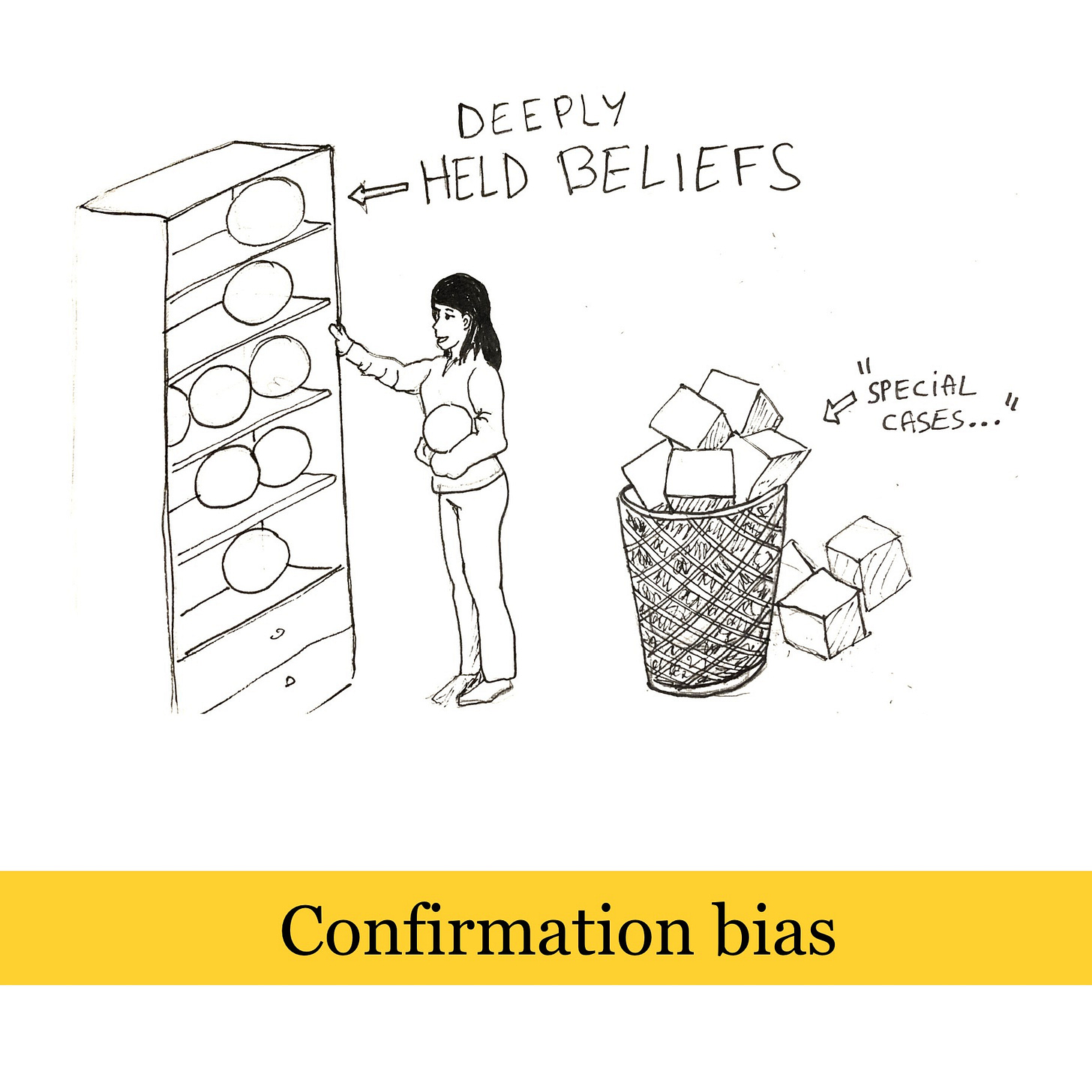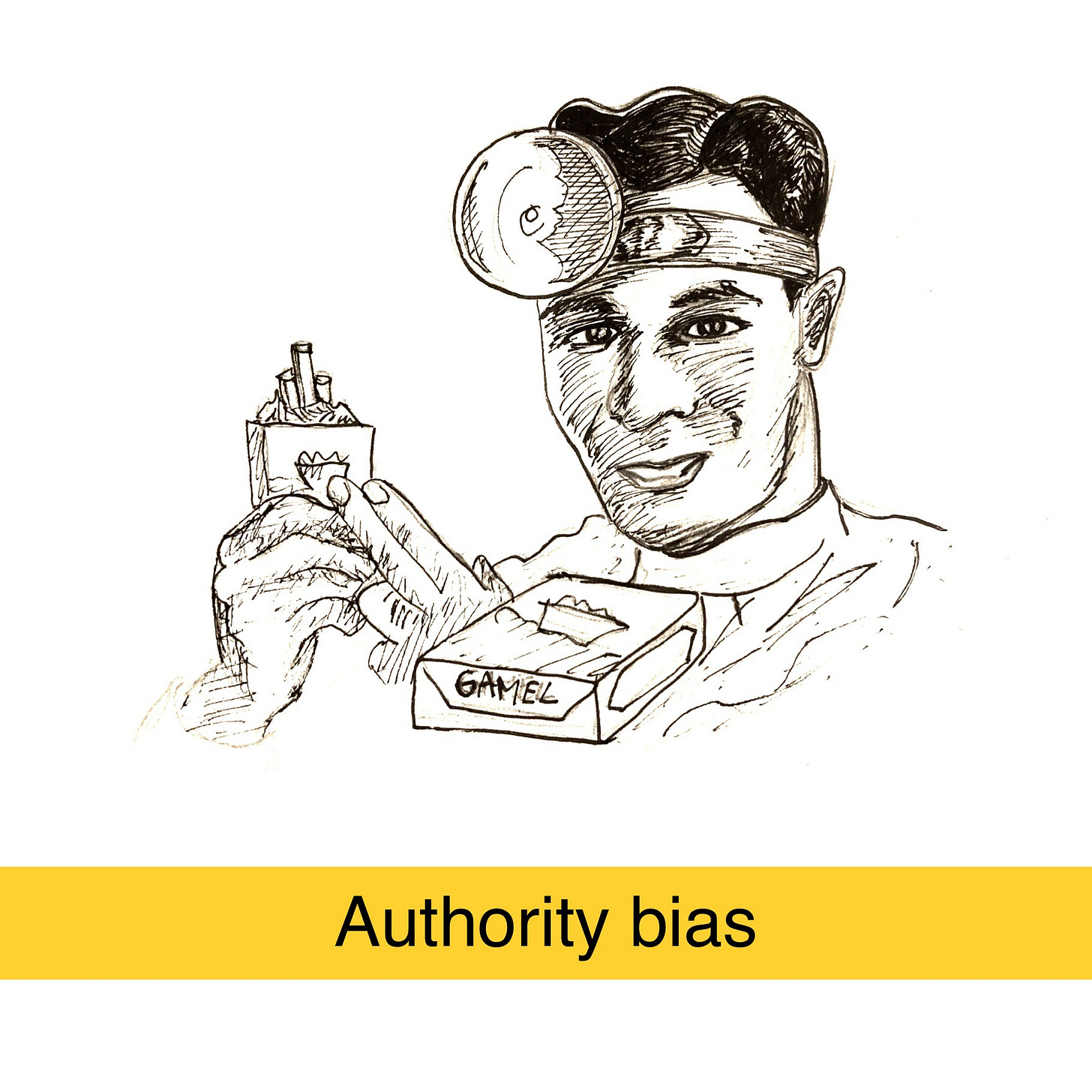Your thinking is flawed - Here is why...
An illustrated journey through the cognitive biases described in the book the "The Art of Thinking Clearly" - part 1
We have 99 problems, but not knowing our bias is one of the big ones.
Our brains, with all the powers they hold, are subject to countless biases. In the book 📖 'The Art of Thinking Clearly', Rolf Dobelli describes 99 of those cognitive biases we generally experience.
To help me remember them, I have started adding illustrations to each one. I’m still in this process, so this will be a series of 10 posts that I will share over time.
If not done already, you may subscribe not to miss any!
Now please enjoy the visual journey, and let me know your thoughts in the comments, or by replying to this email. I appreciate, read and try to answer them all :).
Survivorship bias
The survivorship bias occurs when we focus on the people or things that have survived a selection event and forget about those who did not.
For example: We might listen to a successful person attributing their success to getting up early, while ignoring all the unsuccessful people who also did the exact same.
Swimmer’s body illusion
This is about confusing Cause and Effect, or Trait and Result.
Example: You don't get the body of a professional swimmer by swimming. You can become a professional swimmer because you have the right quality / body type.
This example is a Nurture vs Nature question, so probably more of a grey area.Clustering illusion
Our brains tend to perceive patterns everywhere, so we may need to actively attempt to disprove them to determine if they genuinely hold any truth.
For example: Hearing a message in distorted audio.
Social proof
We tend to imitate others, especially when uncertain; this behavior is often referred to as the 'Herd Mentality.' Of course, fashion, marketing, and social media heavily rely on this phenomenon
Example: If you see people looking up, you might also look up.
Sunk cost fallacy
Continuing in a course of action because we have invested heavily in it, even if it is clearly disadvantageous.
Example: I'm sure you can think of work or personal projects that should have been stopped or corrected course but kept on going due to the investment already made...
Reciprocity
We feel the need to return favors, even when not asked.
Example: If somebody invites you to their home, you feel obliged to do the same.
Confirmation bias
Seeking facts that confirm what we already believe is a strong bias in humans. What's worse is the fact that the information presented to us online is algorithmically filtered to provide more of what we already consume. This traps us in reality bubbles that we need to consciously try to break.
Example: A company changing its strategy, focusing only on evidence that it works, and avoiding any signs of the opposite.
Authority bias
We tend to follow the opinions or orders of people in positions of authority. A humorous term in the organizational context is to follow the 'HIPPO,' which stands for the 'Highest Paid Person's Opinion.'
Example: The famous experiment where the majority of subjects, encouraged by a figure of authority, would have administered lethal levels of electroshocks to an actor playing the role of a subject being tested.
Example 2: Using doctors to promote cigarettes in the early 1950s.
Contrast effect
The alteration of our perception of something occurs when we compare it to something else.
Example: At an oral exam, following someone who performed exceptionally well may lower your received grade; cand vice-versa, going after someone who performed poorly would make you seem more knowledgeable than you actually are.
Availability bias
This bias leads us to believe that something is more likely to occur if it is easy to remember. It also occurs when we rely solely on the data directly available to us when making decisions, instead of taking a broader view.
Examples:
The 'island paradox' depicted in the drawing: Due to the vivid picture that the idea of the island being populated by cannibals evokes, a group stranded at sea chooses the more dangerous option (remaining on the boat and eventually starving to death or dying of dehydration) rather than the safer one (going to the island, where they may or may not encounter cannibals).
Deciding to invest in a marketing campaign based on a competitor's successful strategy, despite having limited data on its potential success for yours.
10 out of 99 bias complete! if you found the drawings interesting, share them around :)
If you liked this, you may as well enjoy this visual summary:
The next 10 biases can be found here:
Your thinking is STILL flawed... find out why!
Last week I shared Part 1 of the visual summary for the book 📖 'The Art of Thinking Clearly' by Rolf Dobelli. It cover the first 10 cognitive biases described. Our thinking is flawed by countless of those biases, recognizing them is the first step to be less influenced by them.














Excellent reminders. You may enjoy content at https://yourlogicalfallacyis.com/ too